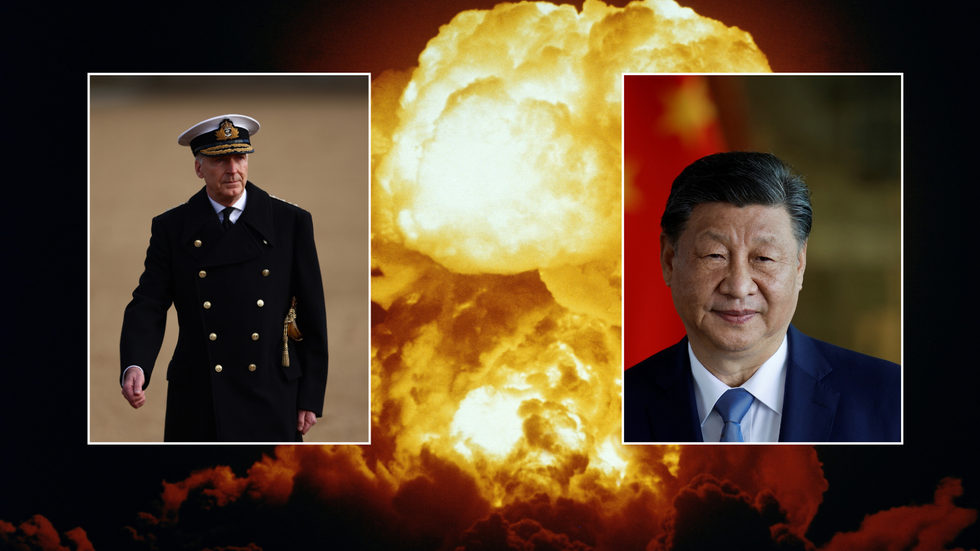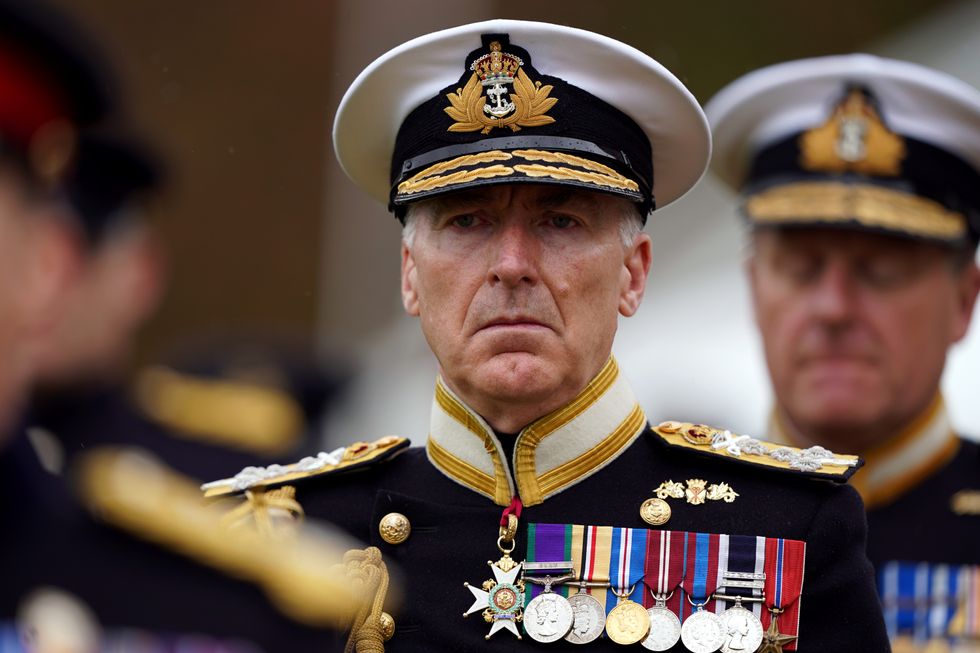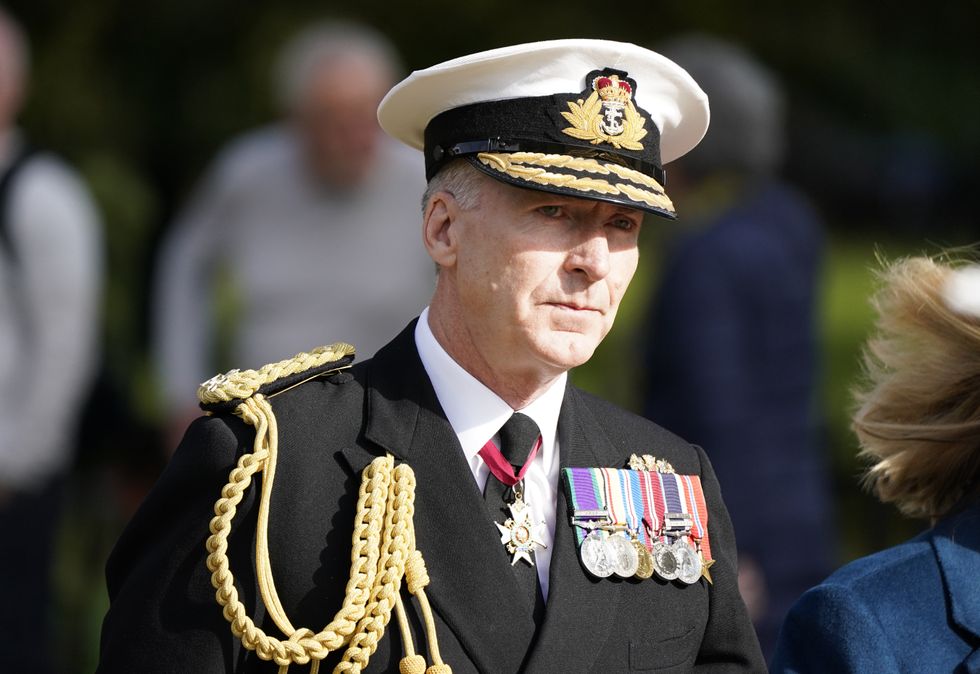China is emerging as a nuclear superpower set to challenge the US and Russia, as Bejing’s ballistic build up poses a “major threat” to Britain and its allies, the head of the armed forces in the UK has warned.
Speaking at the Royal United Services Institute (Rusi) defence think tank in London, Admiral Sir Tony Radakin said that we are entering an era in which nuclear threats and exercises are becoming more common.
He said that the world is on “the dawn of a third nuclear age” thanks to the alliance of China, Russia, Iran and North Korea.
Radakin said that the global balance of power was “shifting” and that the West is facing “wild threats” from Russia and its allies, signalling out Beijing in particular.

Admiral Sir Tony Radakin said that we are entering an era in which nuclear threats and exercises are becoming more common, highlighting China as a huge player
Getty/PA/Reuters
The nuclear threat from China had previously not been considered significant, however Jinping is rapidly expanding his arsenal and by 2030, it could be up to par with the US and Russia.
Radakin said: “From Russia, we have seen wild threats of tactical nuclear use, large-scale nuclear exercises and simulated attacks against Nato countries, all designed to coerce us from taking the action required to maintain stability.
“China’s nuclear build-up poses a two-peer challenge to the United States.
“Iran’s failure to cooperate with the International Atomic Energy Agency is a concern, and North Korea’s ballistic missile programme and erratic behaviour present a regional and, increasingly, a global threat.”
LATEST DEVELOPMENTS:
 Radakin said Britain needed to be ‘clear-eyed’ on the threats it and its allies facePA
Radakin said Britain needed to be ‘clear-eyed’ on the threats it and its allies facePAHe said that Britain needs to be “clear-eyed in our assessment” of the threats it faces, adding: “That includes recognising that there is only a remote chance of a significant direct attack or invasion by Russia on the United Kingdom, and that’s the same for the whole of Nato.”
Radakin said that the Cold War was the first nuclear age, and the second was defined by “disarmament efforts and counter-proliferation”.
However, the upcoming age was “altogether more complex”.
Whilst Britain is not facing an “existential threat like Ukraine or Israel”, it is “experiencing the consequences of a more unstable world in a way that is also very real”, Radakin said.
He continued: “Our national airspace and territorial waters, our critical energy and digital infrastructure, and our public discourse have all been subject to interference. In cyberspace, the frequency of attempts on our networks continues to accelerate, driven by rogue individuals and nation states.
“And we are seeing a Europe-wide campaign of arson and sabotage, characterised – extraordinarily frankly and openly by the heads of two of our intelligence agencies – as ‘a sustained mission to generate mayhem’ and ‘beyond irresponsible’.

Radakin said that the Cold War was the first nuclear age, and the second was defined by ‘disarmament efforts and counter-proliferation’
PA
“But the impact of global instability is felt even more broadly. As consumers, through the cost of living. As taxpayers, through the expense of energy subsidy. Low growth and stagnation across Europe as markets react to an increasingly uncertain world.
“The outlook is more contested, more ambiguous and more dangerous than we have known in our careers. Nowhere is this more apparent than in the nuclear domain.”
He said that the UK’s nuclear arsenal “is the one part of our inventory of which Russia is most aware and has more impact on Putin than anything else”, which is why multiple Governments have pumped “substantial sums of money” into its nuclear submarines and warheads.
Last month, Ukraine’s former military chief claimed that “World War Three has already begun”, with China, Iran, and North Korea now “standing openly beside Putin”.
Valery Zaluzhny, the ex-commander-in-chief who was sacked by Volodymyr Zelensky, said that the involvement of Russia’s allies means the conflict is now on a global scale.